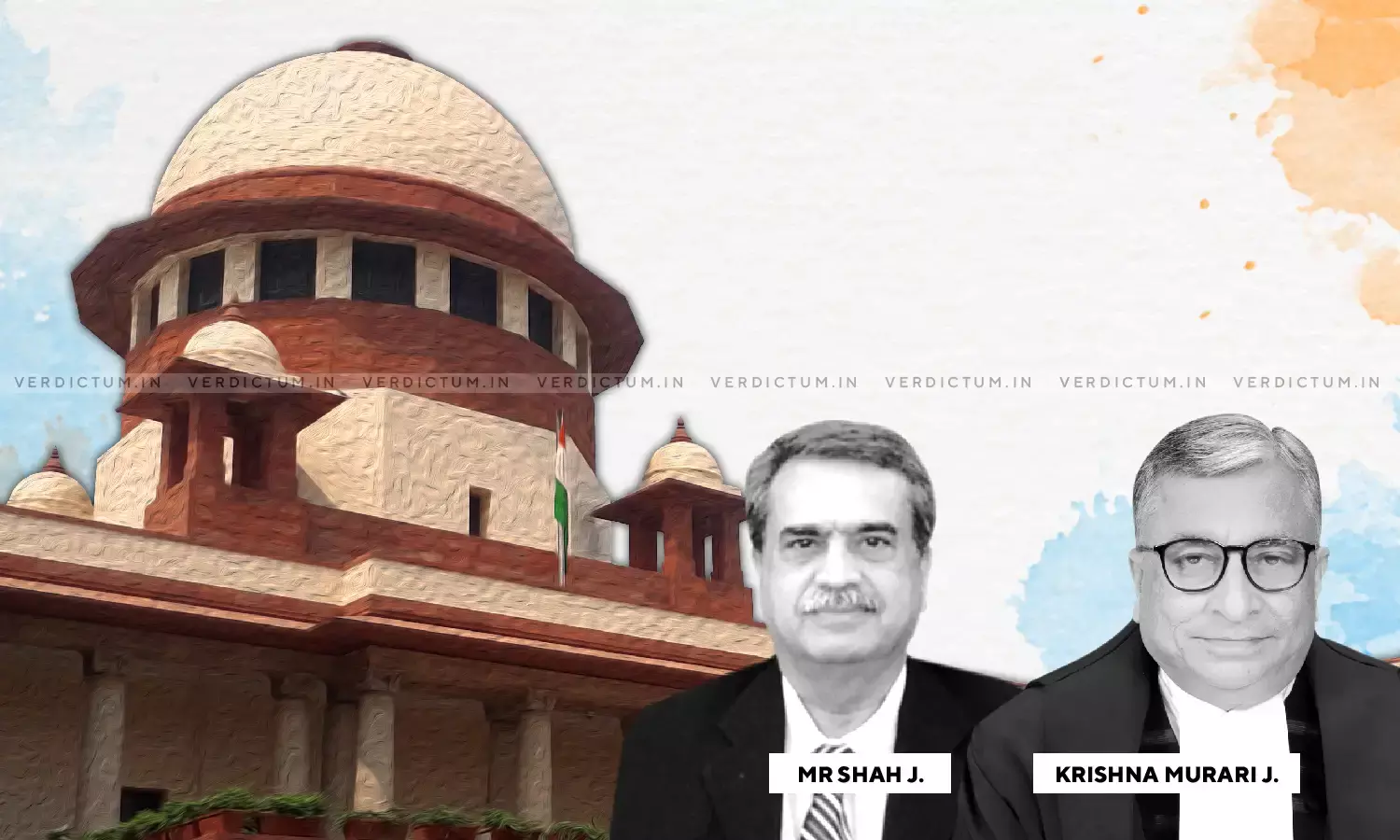Married Daughter Cannot Be Said To Be Dependent On Deceased Mother For Purpose Of Compassionate Appointment- SC
In a case of compassionate appointment, the Supreme Court has observed that a married daughter cannot be considered dependent on her mother for the purpose of granting of appointment on compassionate grounds.
The Bench of Justice MR Shah & Justice Krishna Murari was hearing a plea filed by the State of Maharashtra assailing the judgment of the Bombay High Court which had directed the State to consider the case of the married daughter for the grant of compassionate appointment after a period of seven years from the death of her mother.
The issue that was dealt with by the Court was –
- Whether in the facts and circumstances of the case, the Respondent- Married Daughter shall be entitled to the appointment on compassionate grounds.
Counsel Aaditya Aniruddha Pande appeared for the Appellant while Counsel Prabodh Kumar appeared for the Respondent before the Court.
The Bench placed reliance on the judgment Director of Treasuries in Karnataka and Anr. Vs. V. Somyashree, 2021 SCC Online SC 704, where the Apex Court had referred to the principles governing the grant of compassionate appointment noted in the case of N.C. Santhosh Vs. State of Karnataka, (2020) 7 SCC 617.
The principles are:
i) that the compassionate appointment is an exception to the general rule;
ii) that no aspirant has a right to compassionate appointment;
iii) the appointment to any public post in the service of the State has to be made on the basis of the principle in accordance with Articles 14 and 16 of the Constitution of India;
iv) appointment on compassionate ground can be made only on fulfilling the norms laid down by the State's policy and/or satisfaction of the eligibility criteria as per the policy; and
v) the norms prevailing on the date of the consideration of the application should be the basis for consideration of claim for compassionate appointment.
While referring to the principles, the Court observed –
"As per the law laid down by this Court in catena of decisions on the appointment on compassionate ground, for all the government vacancies equal opportunity should be provided to all aspirants as mandated under Articles 14 and 16 of the Constitution. However, appointment on compassionate ground offered to a dependent of a deceased employee is an exception to the said norms. The compassionate ground is a concession and not a right."
The Court further held –
"…compassionate appointment is an exception to the general rule of appointment in the public services and is in favour of the dependents of a deceased dying in harness and leaving his family in penury and without any means of livelihood, and in such cases, out of pure humanitarian consideration taking into consideration the fact that unless some source of livelihood is provided, the family would not be able to make both ends meet, a provision is made in the rules to provide gainful employment to one of the dependants of the deceased who may be eligible for such employment. The whole object of granting compassionate employment is, thus, to enable the family to tide over the sudden crisis. The object is not to give such family a post much less a post held by the deceased."
Thus, the Court held that Respondent cannot be said to be dependent on the deceased employee i.e., her mother.
Accordingly, the Court set aside the impugned order of the High Court and allowed the appeal.
Cause Title – The State of Maharashtra and Anr. v. Ms. Madhuri Maruti Vidhate (Since after marriage Smt. Madhuri Santosh Koli)
Click here to read/download the Judgment




